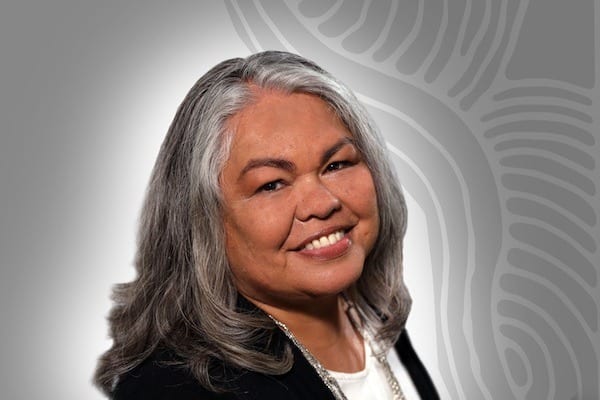Susan Moylan-Coombs has officially launched her campaign to run as an independent in the seat of Warringah at the next Federal Election, taking on Tony Abbott in the process.
She not only wants to replace Abbott in the seat, but also as special Envoy on Indigenous Affairs, declaring such a role would be a natural extension of her personal heritage and her long professional career supporting Indigenous issues.
Below we share more from her speech at her launch this morning, including how she wants to see the “change the date” conversation shift.
As we head towards January 26th, our national day of controversy and debate, my message is …
Come on Australia, we are better than this!
It’s time to talk about Australia Day with a united voice of reason.
I am driven to talk about Australia Day here at my campaign launch because:
One – I am a First Nations woman. My ancestry is in Woolwonga and Gurindji from the Northern Territory.
Two – As a Warringah resident for more than 50 years, it’s time for my electorate to consider Australia Day from their unique perspective.
So firstly, as an Indigenous woman, I know we need to talk about the truth and trauma of this anniversary to understand why its ‘celebration’ feels like pressing on a bruise to First Nations people every January.
In this capacity, I ask three questions:
Why do Australia’s government leaders continue to allow January 26 to be the date that divides us as a nation?
Why is it “safer” for politicians to prevent the bruise from healing?
Why don’t they want to heal the trauma?
In mid-summer every year, the same conversation about Australia Day gathers momentum.
As the arguments and hostilities begin, many Australians hope for a different outcome.
But, like “Ground Hog Day”, this now 230-year old debate – with no winner – ends in a stalemate of ‘us and them’.
I want to move the conversation from one of hostility to one of hope.
Next year, I would like to see the inevitable Australia Day discourse take a new, and positive, direction. I’d like to hear the talk turn towards healing this long-open wound that splits this nation in two every summer.
I believe the likely change of government in 2019 offers us all the chance to shine a light on the trauma and speak about the way we do Australia Day, with new understanding – to talk about its true impact on Indigenous Australians.
I also want to speak about Australia Day because of its significance to my home, the electorate of Warringah, and especially Manly, land of the Gai-mariagal people, and in particular the Kay-ye-my clan.
Manly, in a sense, has special rights in the Australia Day debate – for two reasons.
First, it was at Federation Point – where the Fairlight Scenic Walk rounds the bend to Manly Cove – that the curious Kay-ye-my men welcomed Captain Phillip to their land. Perhaps not everyone knows the story of Captain Phillip naming our iconic suburb after these men’s impressive physiques.
Social commentators have recently circulated their discovery finding the original Australia Day was, in fact, July 30, 1915 – nominated to raise funds for World War I.
It’s important, at this point in our history, to shed light on the truth about our traditional day. In particular, the significance Australia Day has to my electorate. Because it was Manly resident, Ellen Wharton-Kirke, who successfully lobbied her premier – more than 100 years ago – to hold a nationwide fundraising day for the war effort.
Ellen’s Australia Day did not actually ‘celebrate’ the landing of the First Fleet.
The modern Australia Day of January 26th only dates back to 1994, when it was declared a public holiday – the same year Tony Abbott was elected as Warringah’s Member of Parliament.
And I feel it’s necessary to put the commencement of our January 26 public holiday into some perspective. For those who remember the 1990s well – it was 18 months earlier that the High Court overturned the doctrine of Terra Nullius.
Perhaps in the future, Australians could commemorate Eddie Mabo’s long fight for Native Title with a long weekend in June?
In closing, it saddens me that, today, our nation is at war with itself over a version of Australia Day that has been packaged by government leaders as our answer to America’s Independence Day, or France’s Bastille Day.
But Australia had no such revolution for the common good.
A treaty is the only step towards healing the ongoing Australia Day trauma experienced by Indigenous Australians. If I am given the honour of being Warringah’s representative in the 2019 Parliament, I will open the conversation about a treaty, picking up the cause that my grandfather, H. C. ‘Nugget’ Coombs started.
I will work to take the pressure off the ever-darkening bruise on our society caused by Australia Day as we know it.
I will unite our nation in the way we could have been united over the past 230 years, if only there had been no ‘us and them’.


